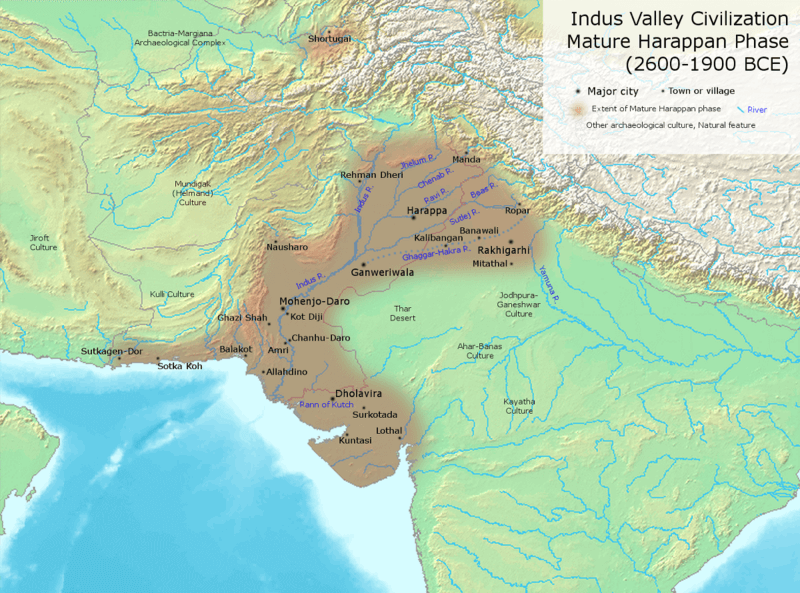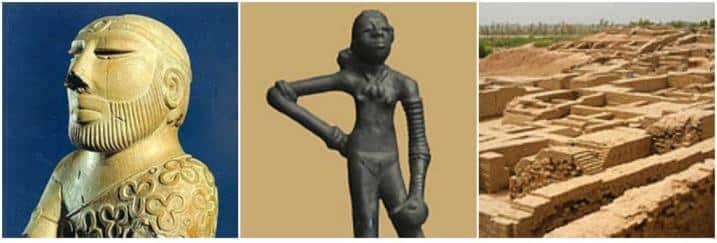 The Indus Valley Civilization covered parts of Sind, Baluchistan, Afganistan, West Punjab, Gujarat, Uttar Pradesh, Haryana, Rajasthan, Jammu and Kashmir, Punjab and Maharashtra. Over 1000 Indus Valley Civilization sites have been discovered.
The Indus Valley Civilization covered parts of Sind, Baluchistan, Afganistan, West Punjab, Gujarat, Uttar Pradesh, Haryana, Rajasthan, Jammu and Kashmir, Punjab and Maharashtra. Over 1000 Indus Valley Civilization sites have been discovered.
It’s not easy to connect the archaeological finds with their respective Harappan cities. But in exams questions are repeatedly asked from this topic. This post is a humble attempt to compile the important Indus Valley Sites and the archaeological discoveries from there. Readers may note that a few of the major sites are already covered in our notes on the features of Indus Valley Civilization
.Harappa
- Cemetery H & R37.
- Coffin burial.
- Granary outside the fort.
- Phallus worship.
- Graveyard.
- Mother goddess.
Mohenjo-Daro

- Prepared Garments.
- Temple like Palace.
- Pashupati seal.
- Statue of a dancing girl.
- Ivory weight balance.
- The Great Bath.
- The Great Granary.
- Priest king statue.
Kalibangan
- Lower fortified town.
- Fire Altar.
- Boustrophedon style.
- Wooden drainage.
- Copper ox.
- Evidence of earthquake.
- Wooden plough.
- Camel’s bone.
Lothal
- Port Town.
- Evidence of Rice.
- Fire Altar.
- Graveyard.
- Ivory weight balance.
- Copper dog.
Rangpur
- Evidence of Rice.
Surkotada
- Horse bone.
- Stone covered grave.
Malavan
- Canals.
Chanhudaro
- Bangle factory.
- Ink pot.
- Only city without citadel.
- Carts with seated driver.
Balakot
- Bangle factory.
Daimabad
- Bronze Buffalo.
Amri
- Actual remains of Rhinoceros.
Alamgirpur
- Impression of cloth on a trough.
Ropar
- Buildings made of stone and soil.
- Dog buried with humans.
- One inscribed steatite seal with typical Indus pictographs.
- Oval pit burials.
Banawali
- Oval shaped settlement.
- Only city with radial streets.
- Toy plough.
- Largest number of barley grains.
Dholavira
- Only site to be divided into three parts.
- Giant water reservoir.
- Unique water harnessing system.
- Dams.
- Embankments.
- A stadium.
- Rock – cut architecture.

No comments:
Post a Comment